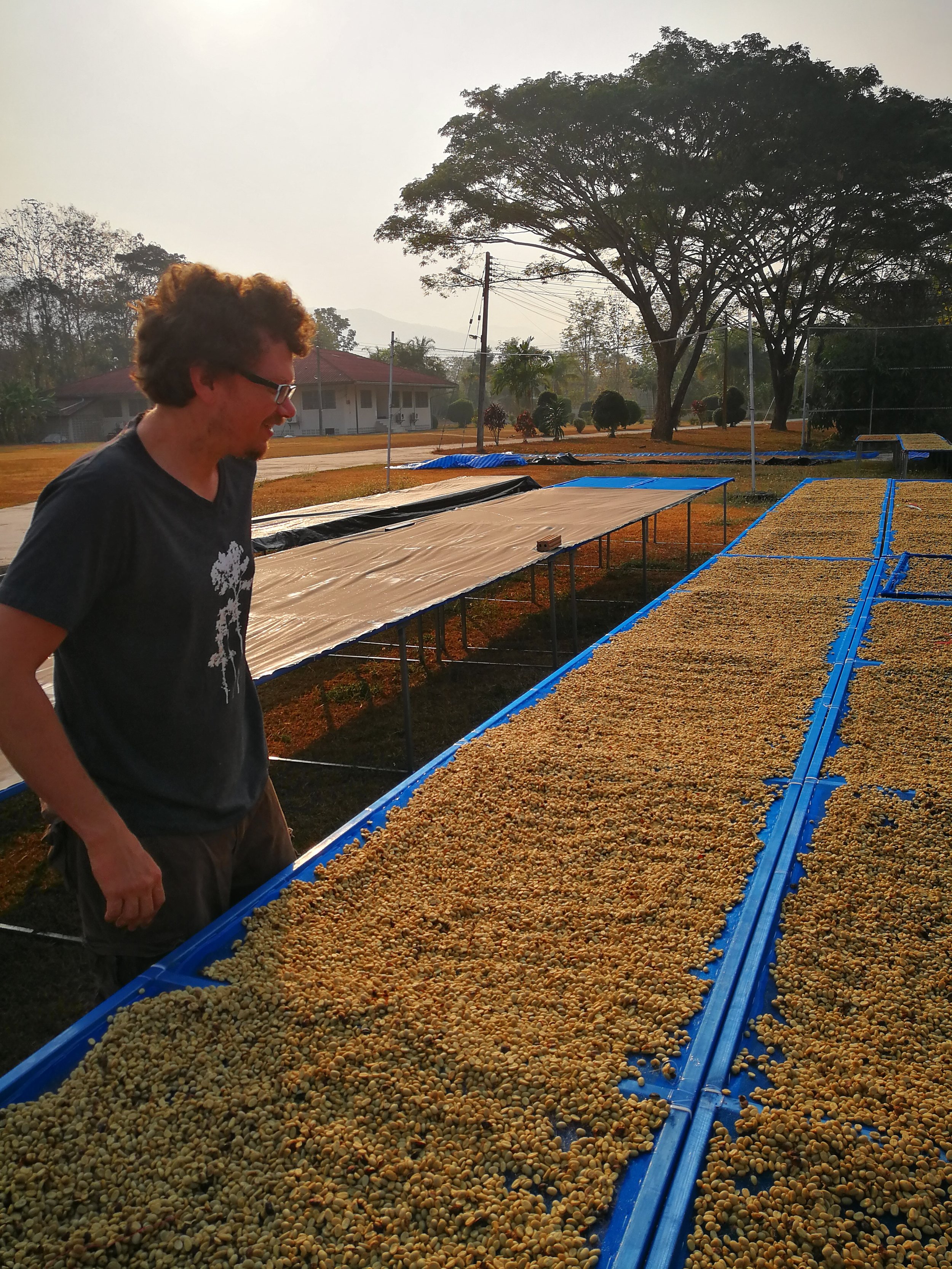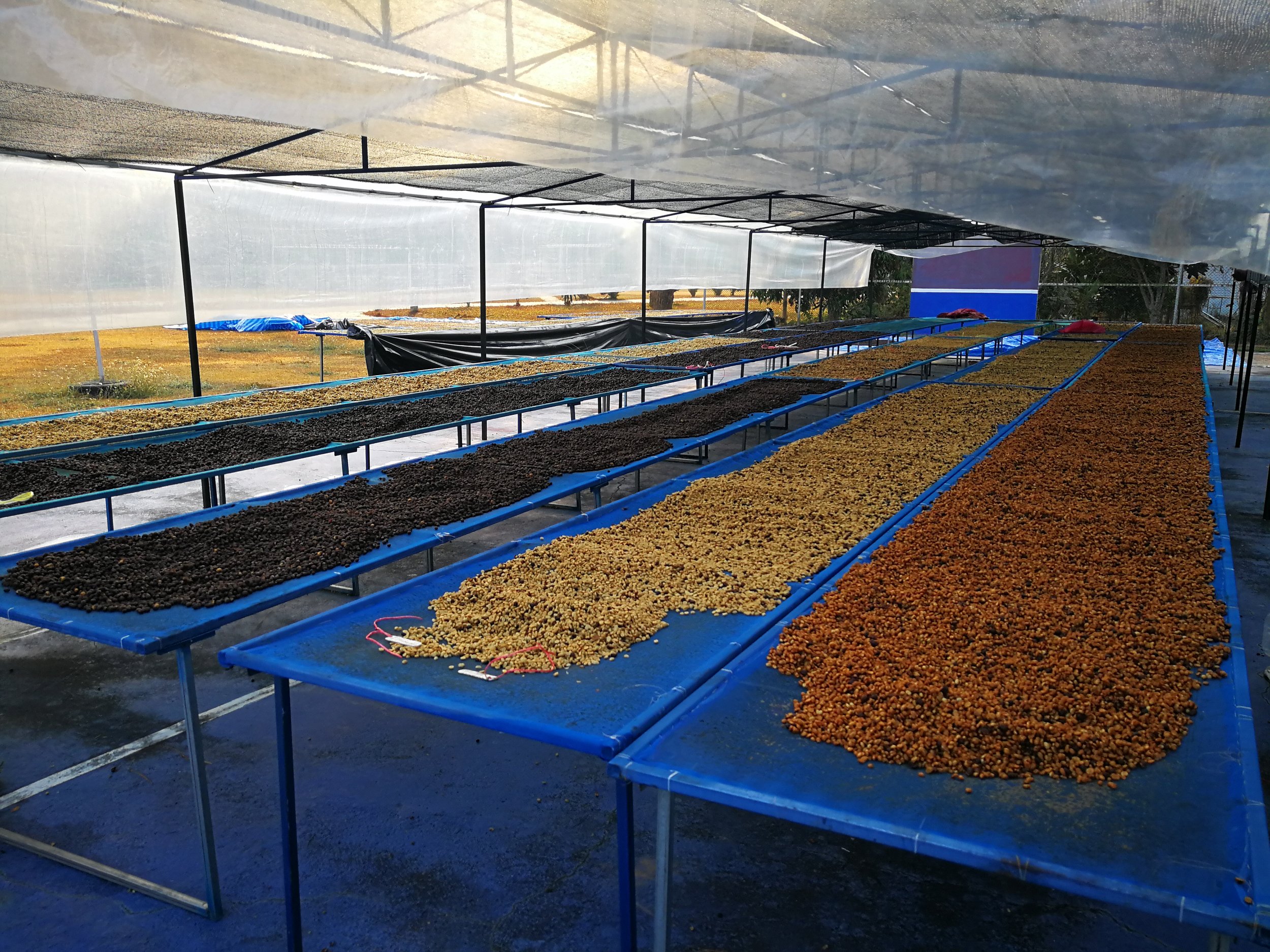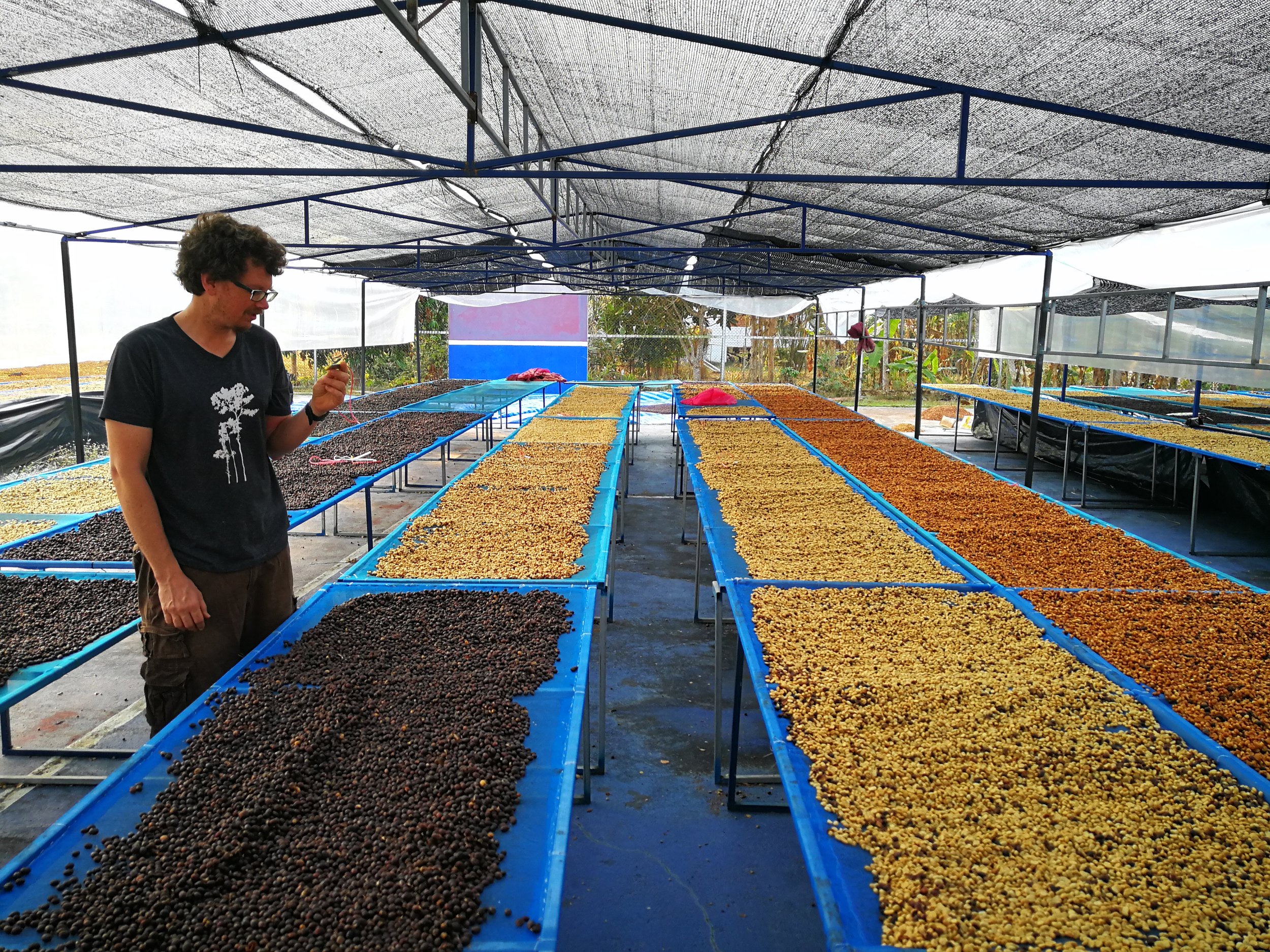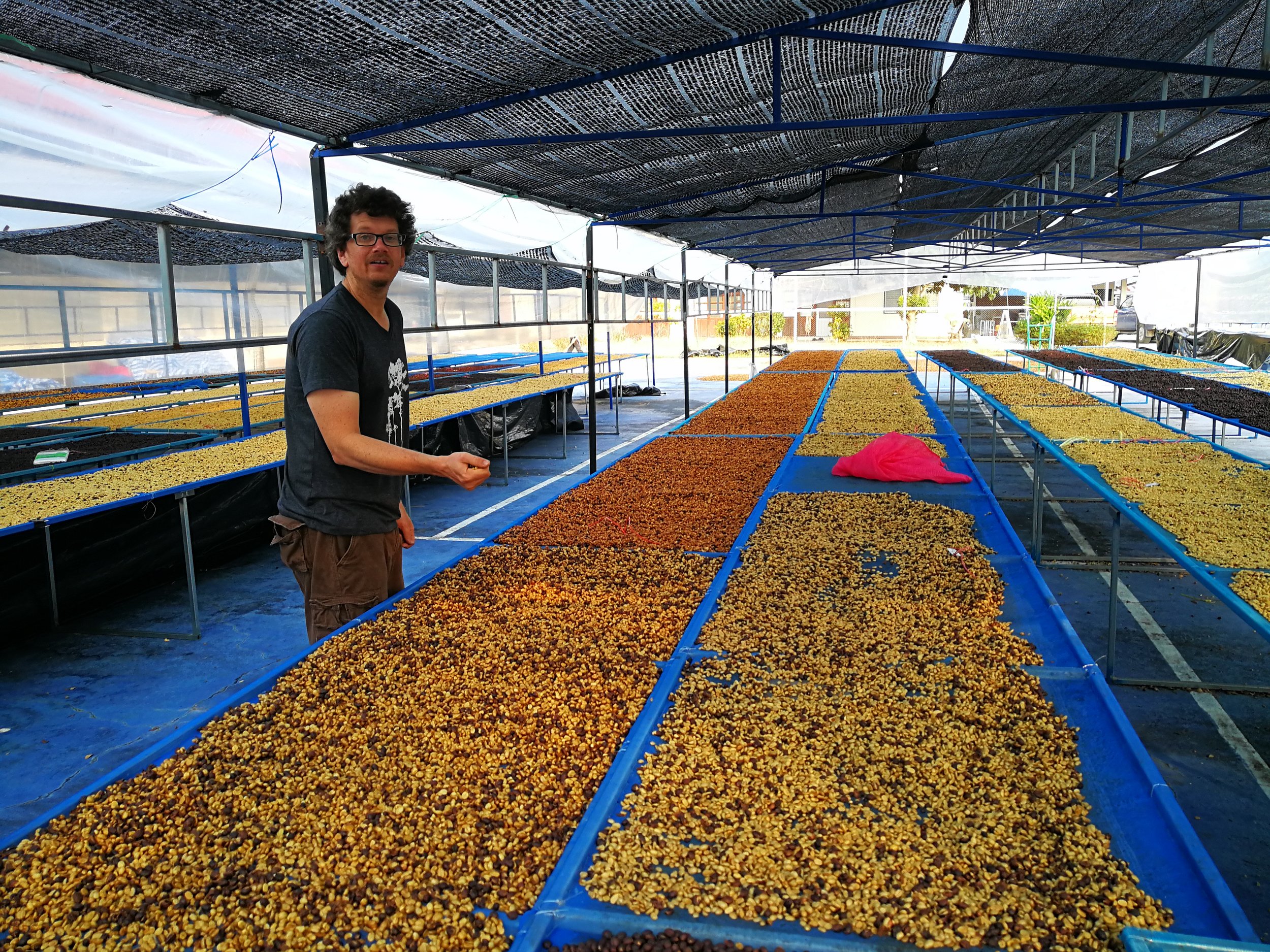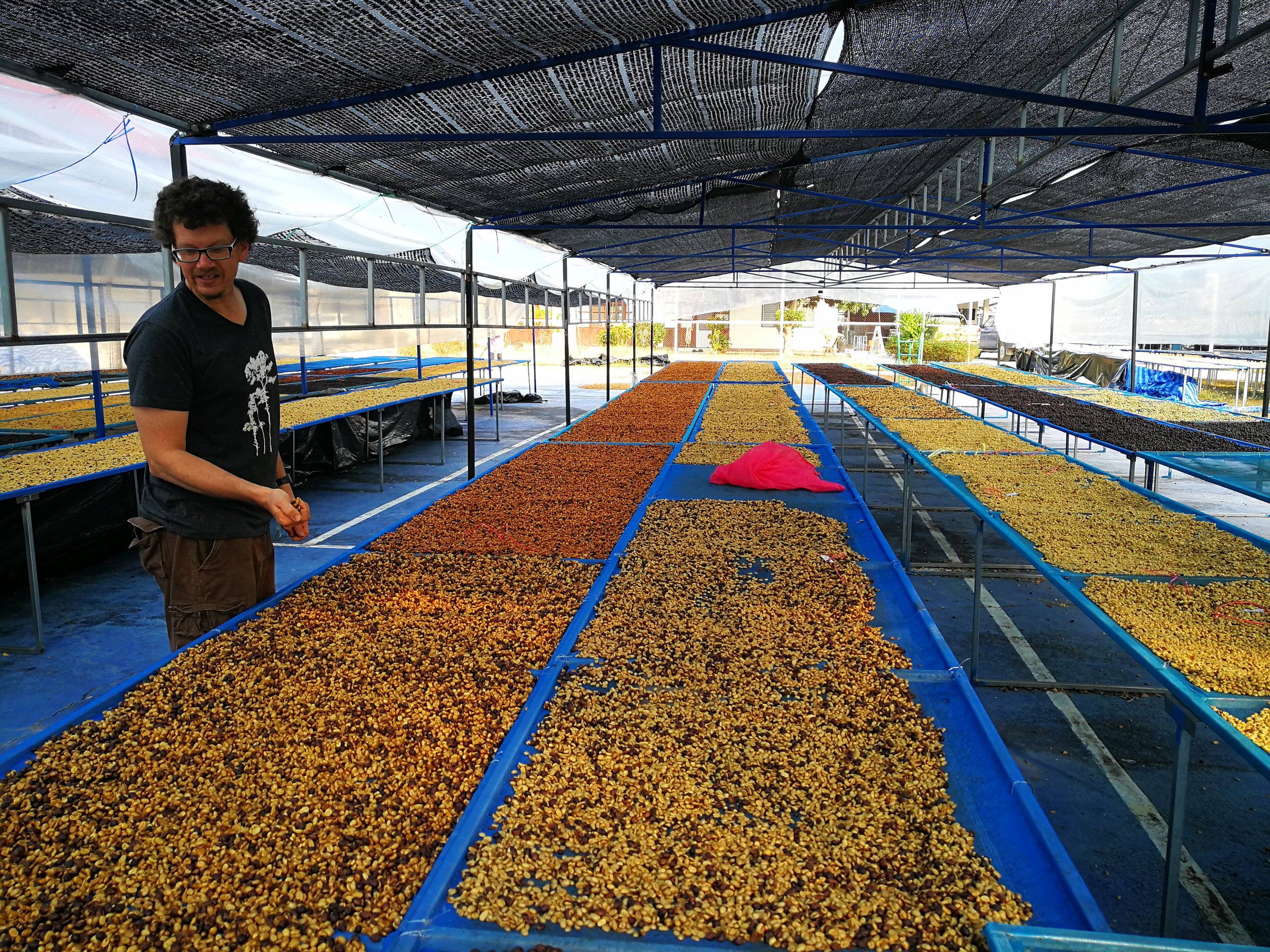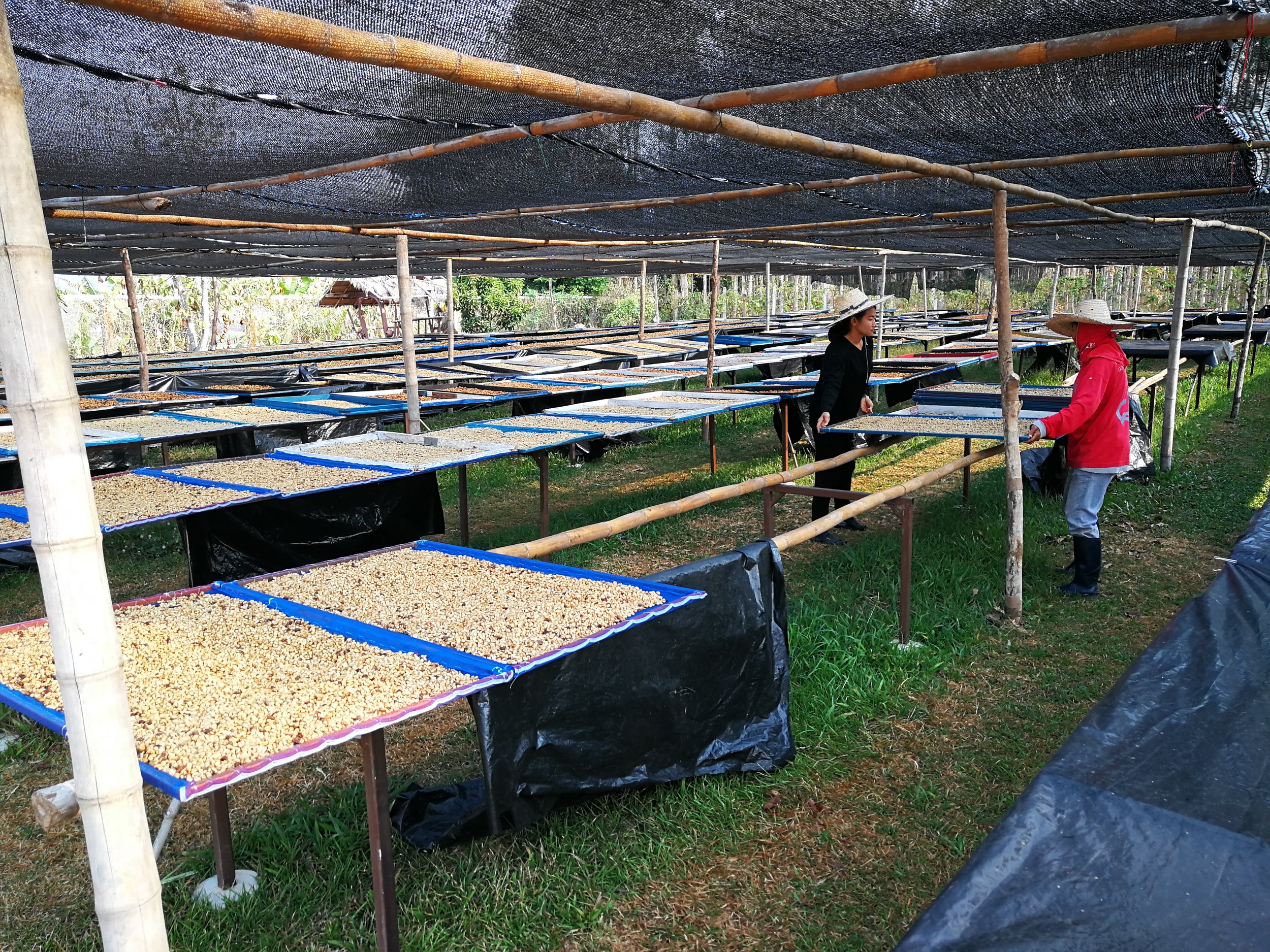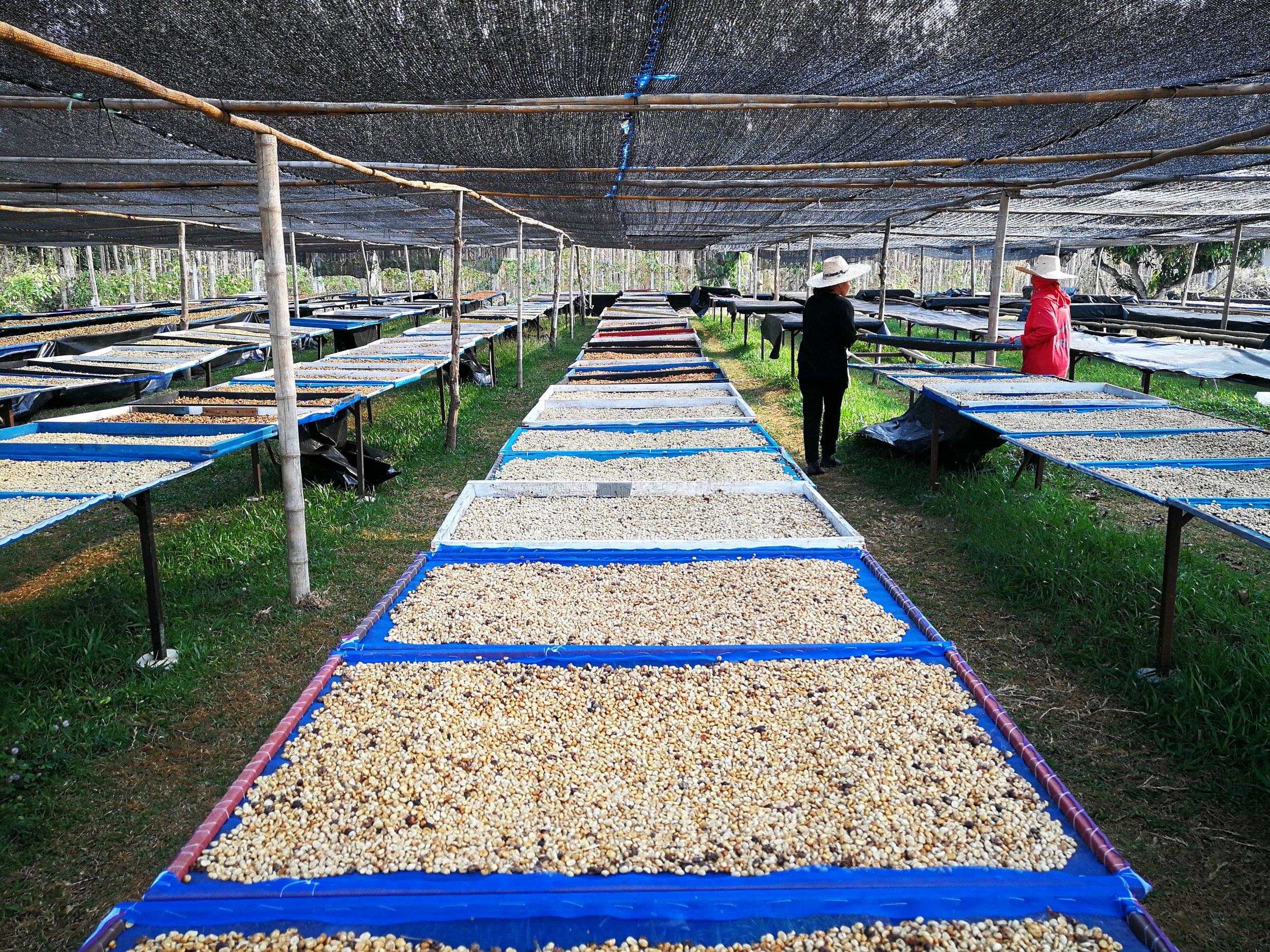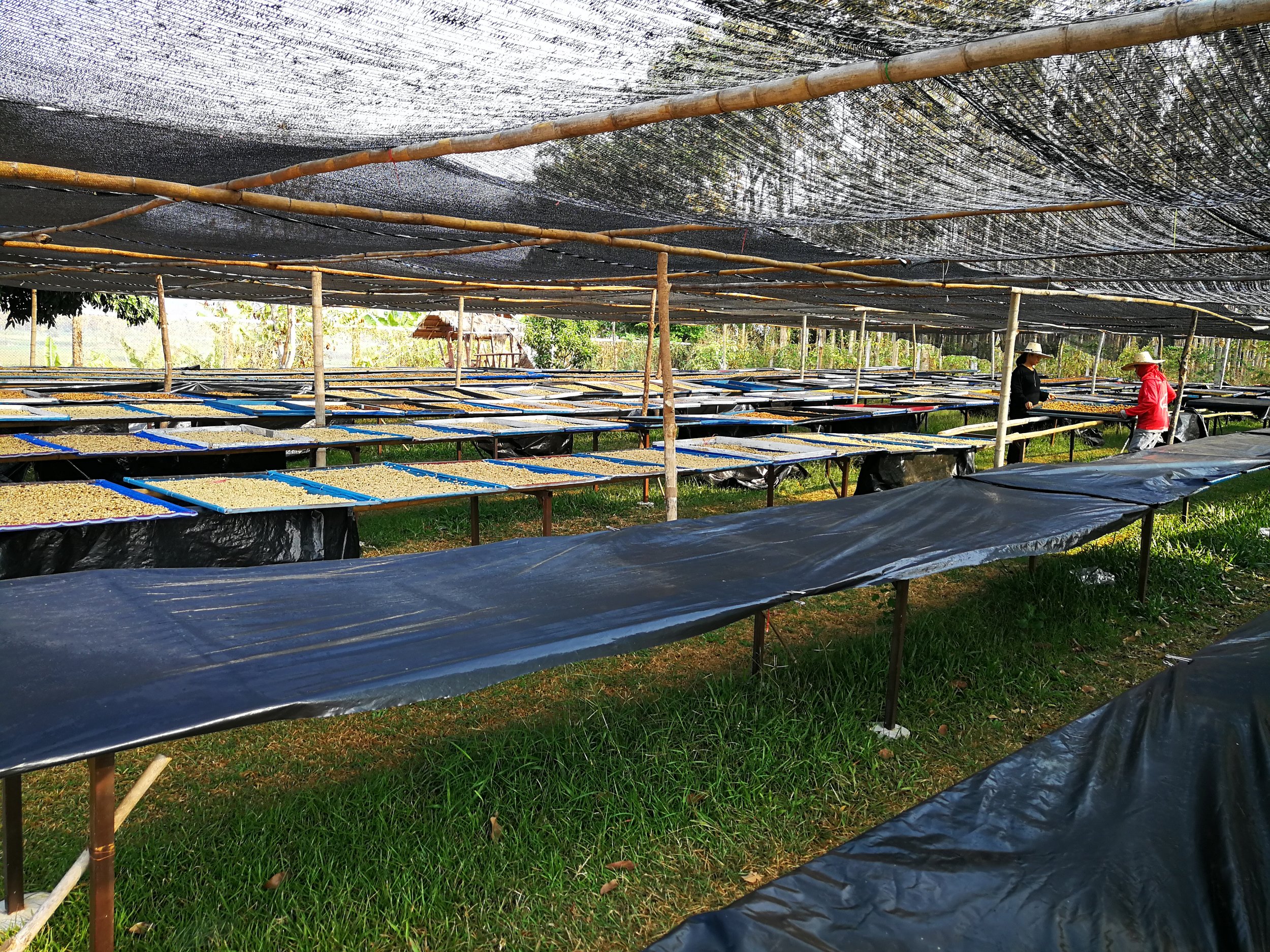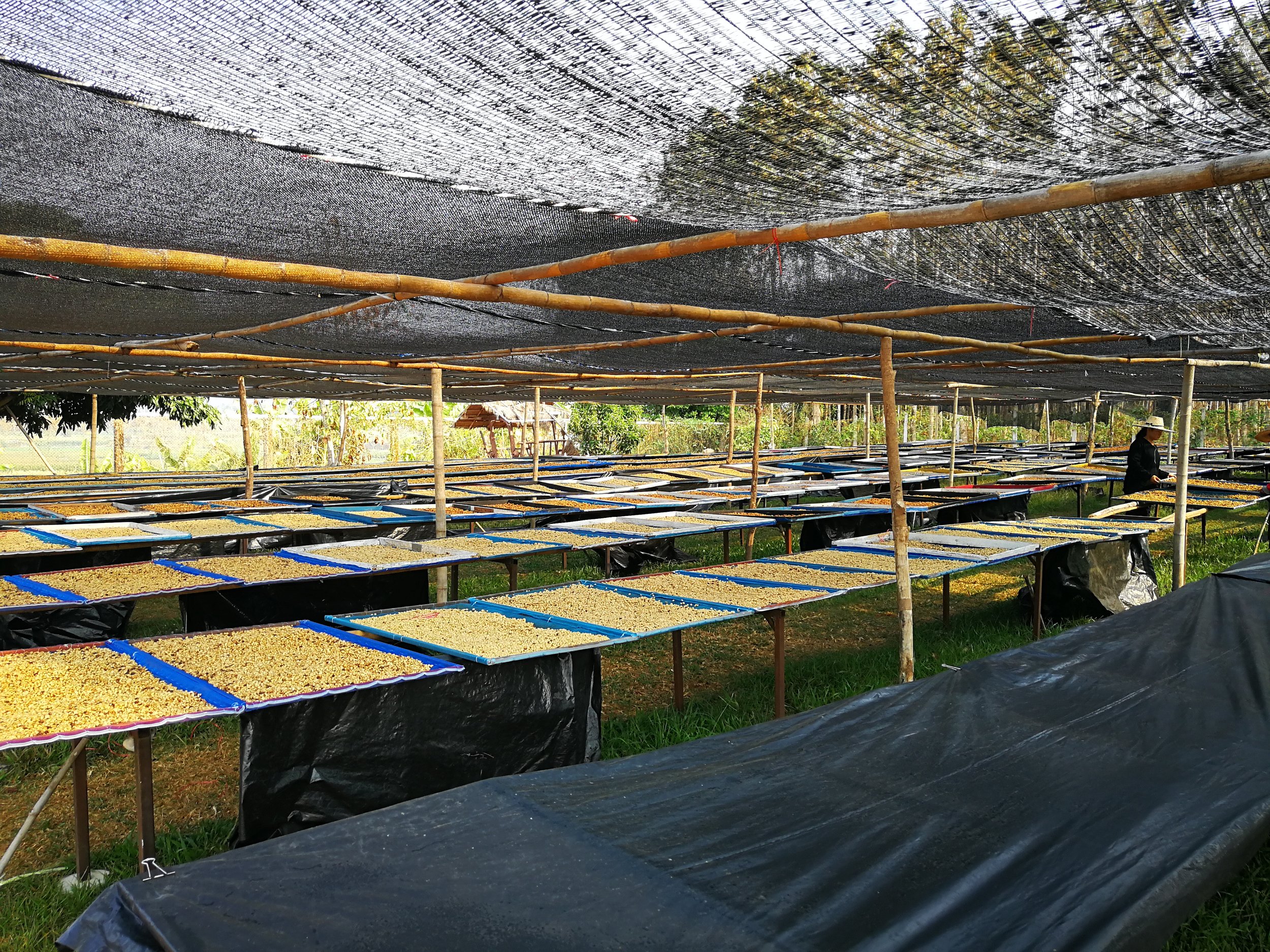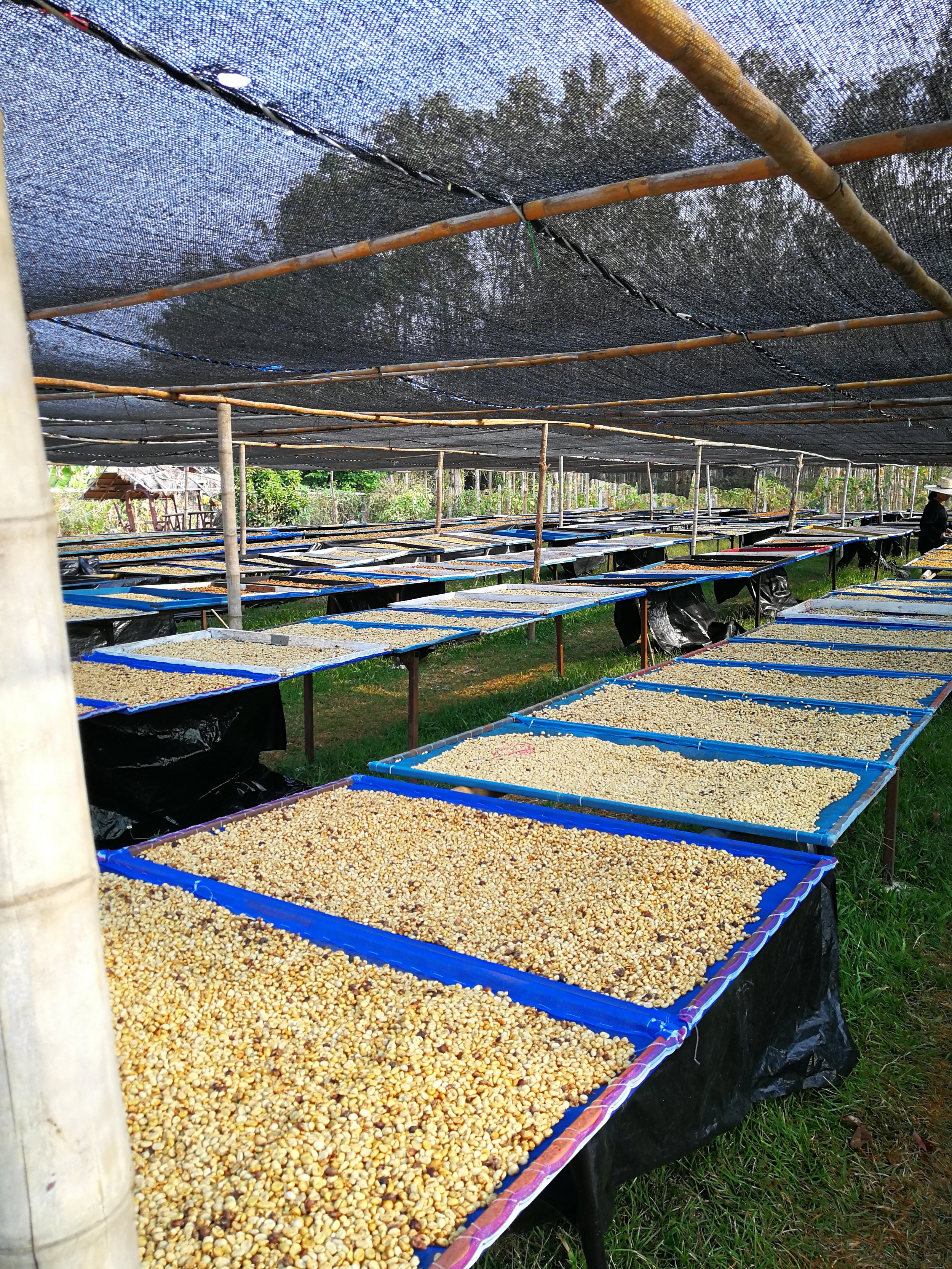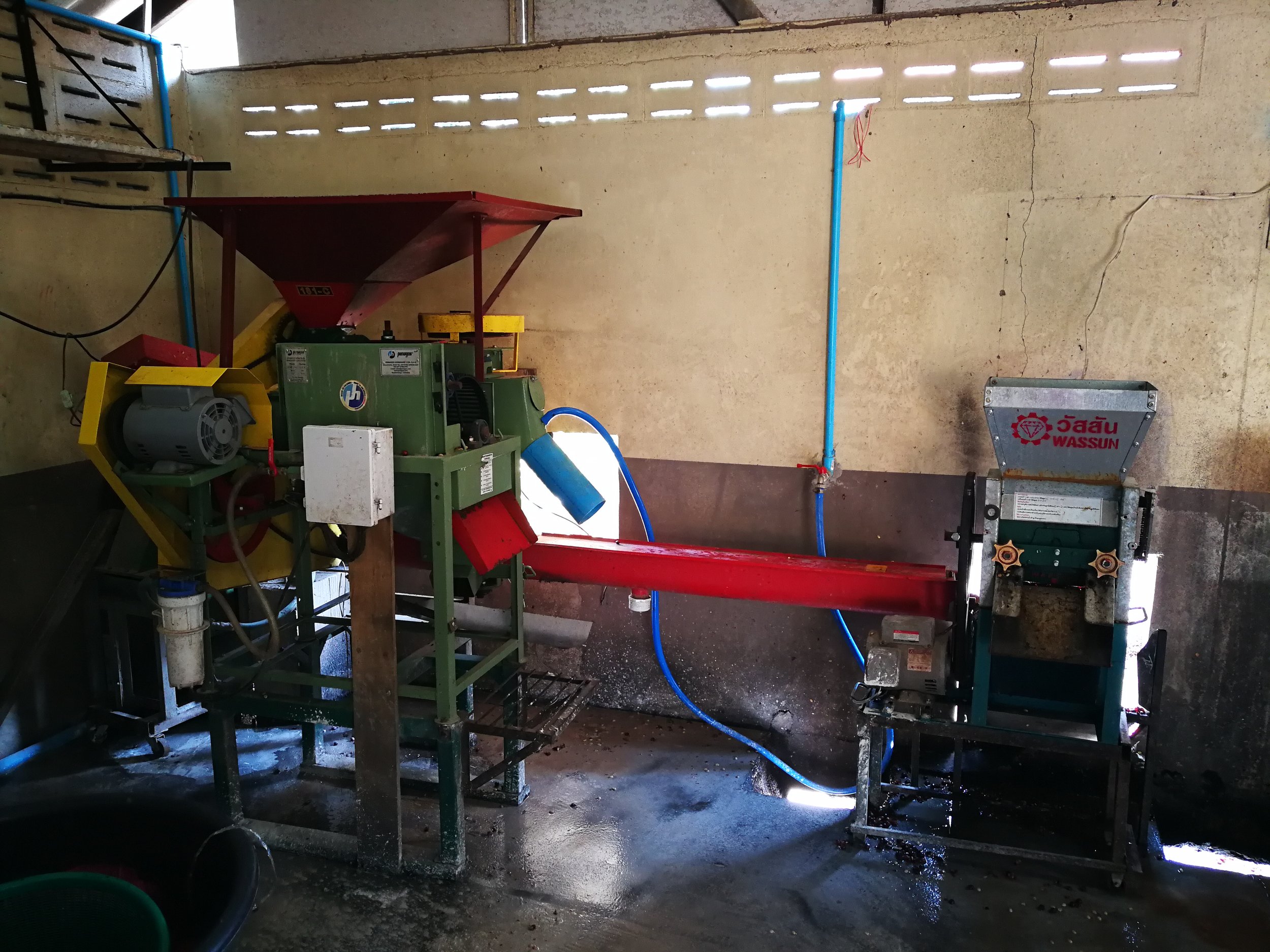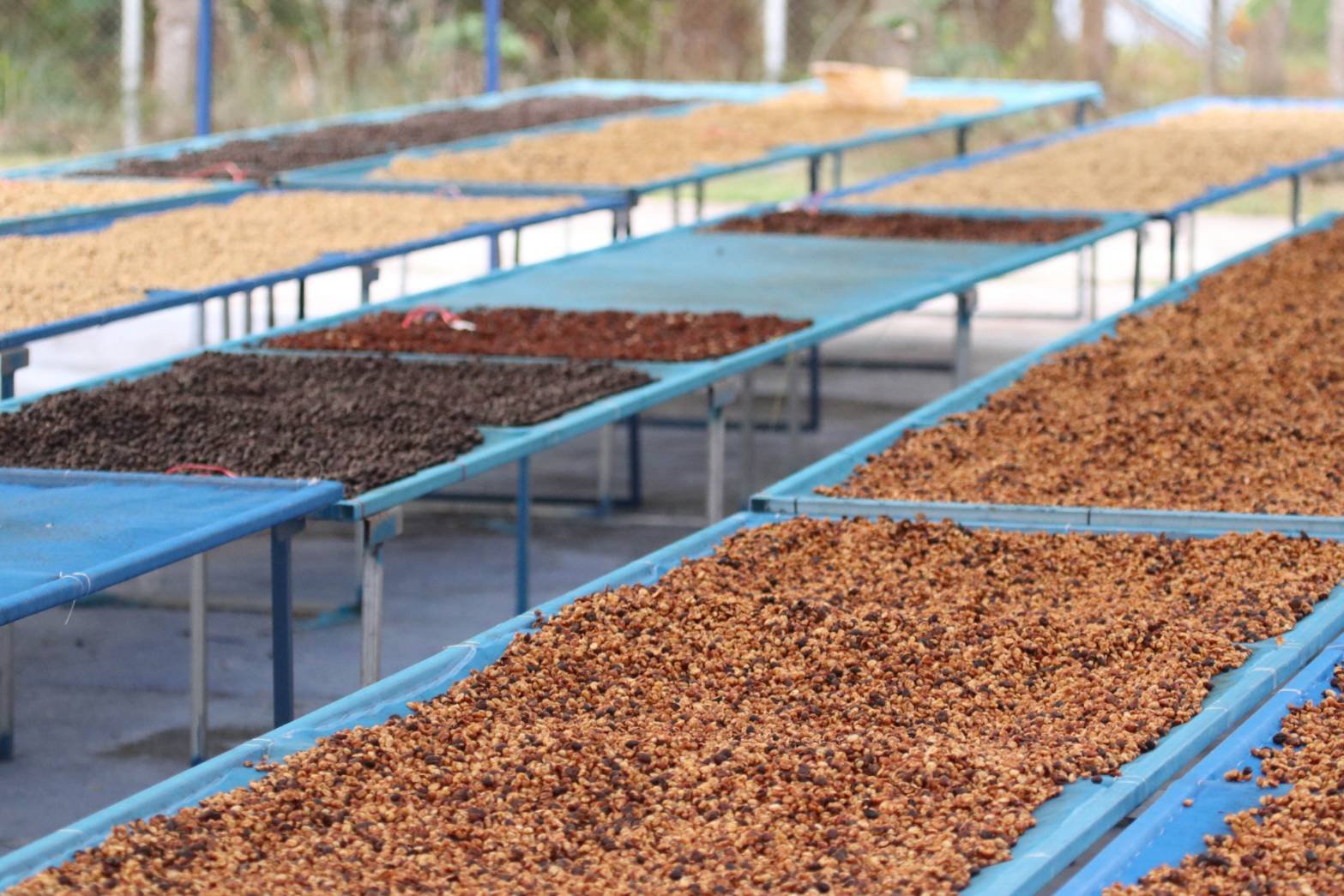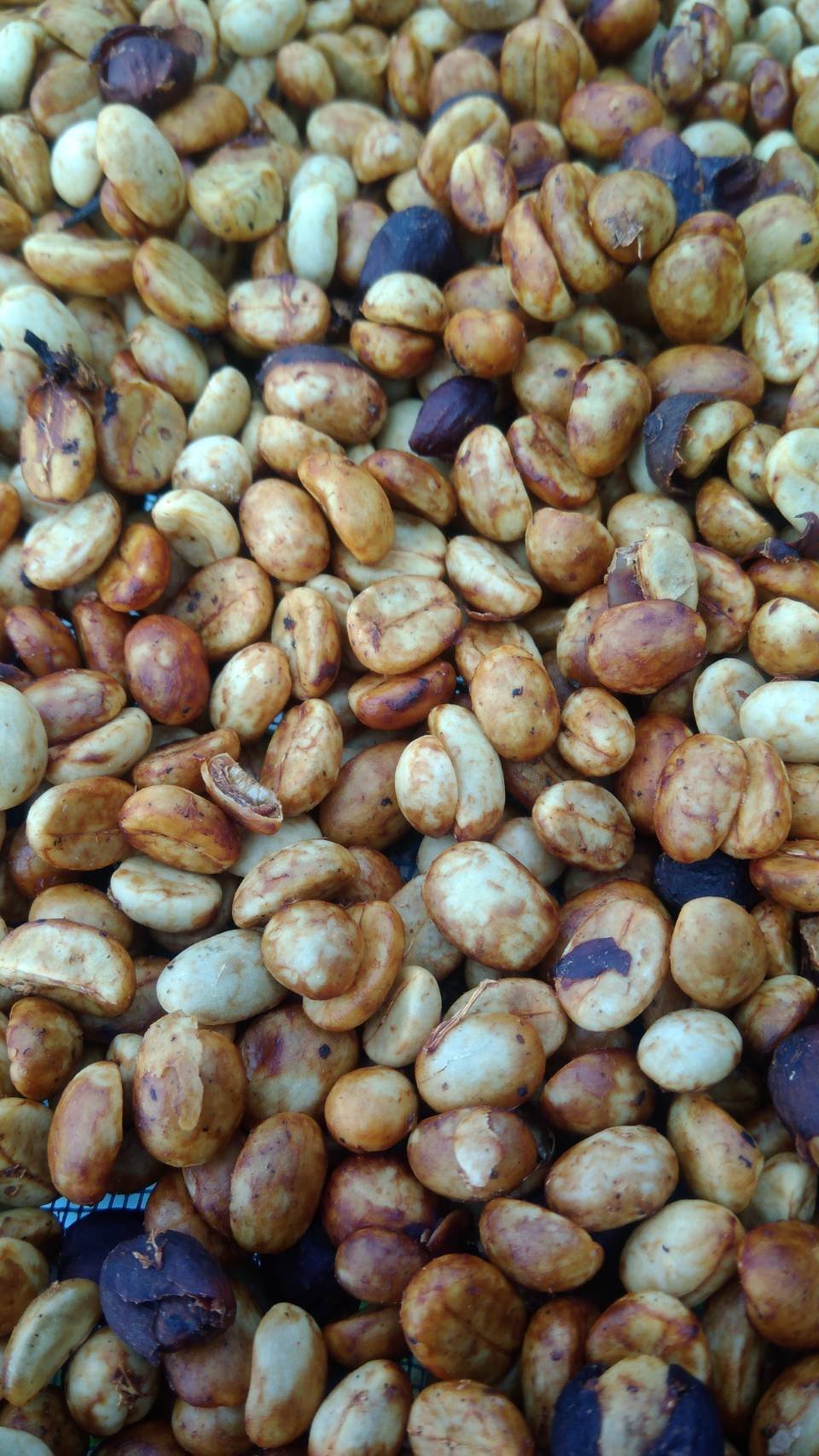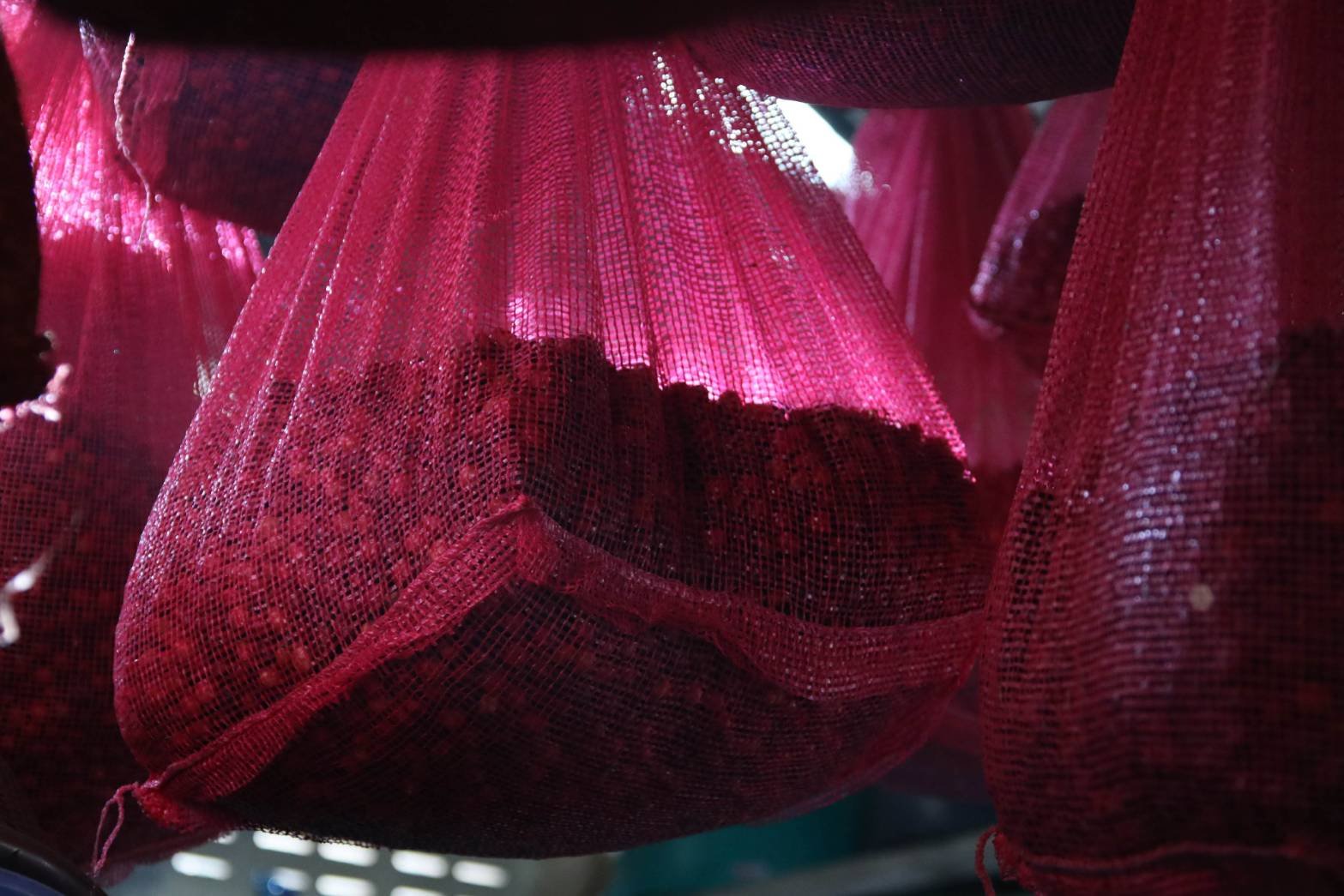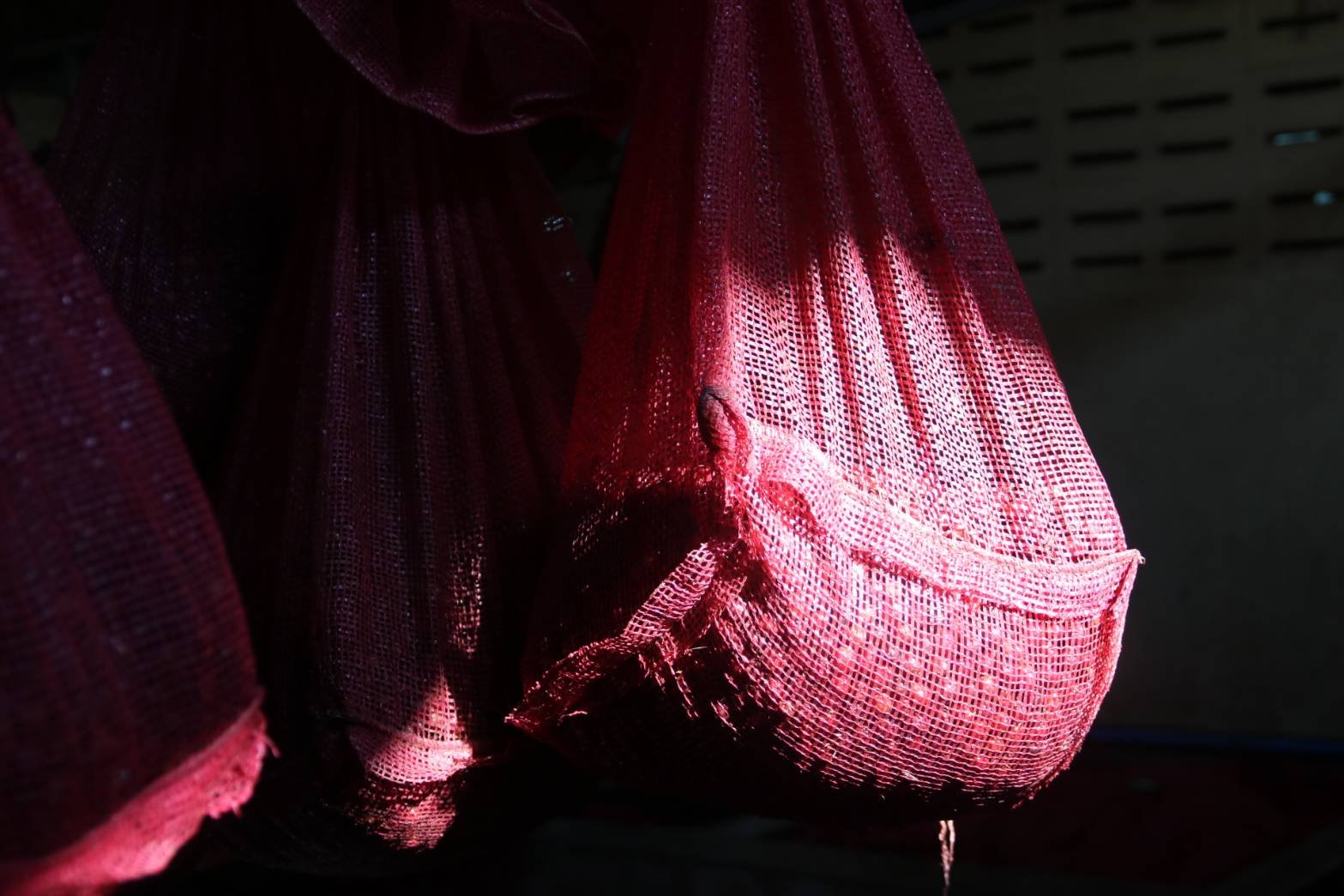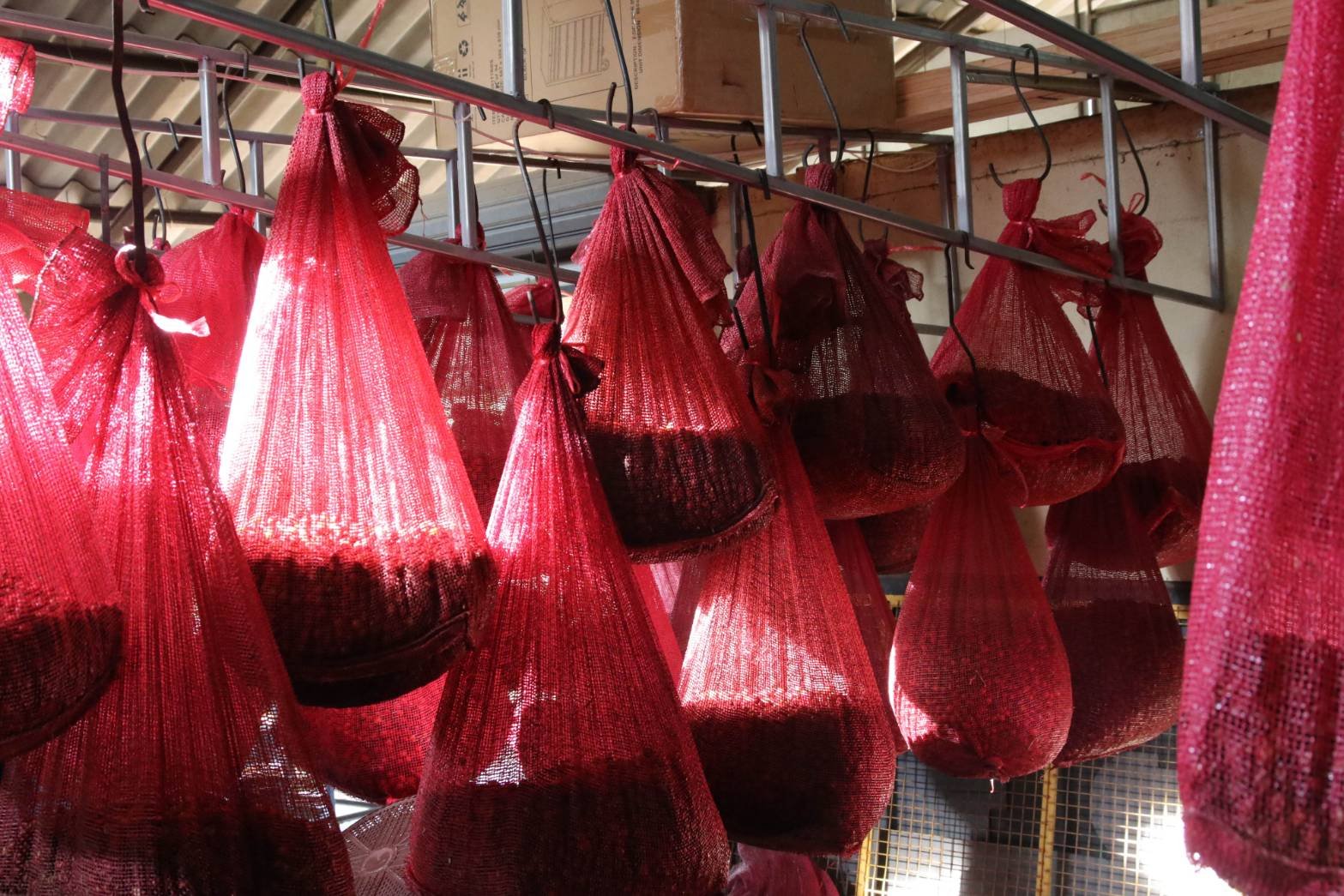working for strong communities
When Kaleb returned to Thailand after being abroad for a few years in the US, he wondered: What can I do to help people stay home with their families and create prosperity? He was worried about the high migration, especially from very young people that were mainly motivated to pursue their ambition in larger cities, or other countries He also noticed that the opium eradication programs started by the late King was not truly pushing true, since most farmers didn’t have the tools or the resources to manage the entire process. Coffee came as a possibility because it was truly the only thing Kaleb knew how to do. During his time in the US, as an intern in the Church he and his family belong to, he ended up being in charge of the small roaster station and somehow decided to take it seriously. This initial, raw curiosity, lead him to research coffee when there was not much information about coffee being published, and gave him the experience he needed to return to his roots and work with coffee in his community. Today, he runs the project the Gem Forest that’s growing from within every year in entirely unexpected ways.
CULTIVARS:
Chiang Mai 80
Altitude:
1500 meters above sea level
PROCESSING:
Red Honey: coffee cherries go into the float tank to remove the floaters. Soon after, cherries are hung up in mesh sacks in the shade for about 2-4 days, depending on the temperature. Then they are dry pulped and set out to dry on shaded raised beds. After a couple days, the mucilage coating the parchment oxidizes to a reddish brown color and tastes a little tangy. Then the drying is completed on screen in the shade after about 20 days.
Kombucha White Honey: coffee cherries are harvested, floated, and pulped immediately. Pulped coffee is submerged in spring water, sealed in a barrel with 1:50 inoculation of kombucha (made with local microbes) for 36 hours at 25C, still leaving some of the mucilage on the parchment. Coffee is then removed from the barrel and shade dried without removing the mucilage. Drying time is about 20 days.
PHOTO GALLERY
You may use these images freely to promote Beanspire. Please credit Beanspire if you do so.



